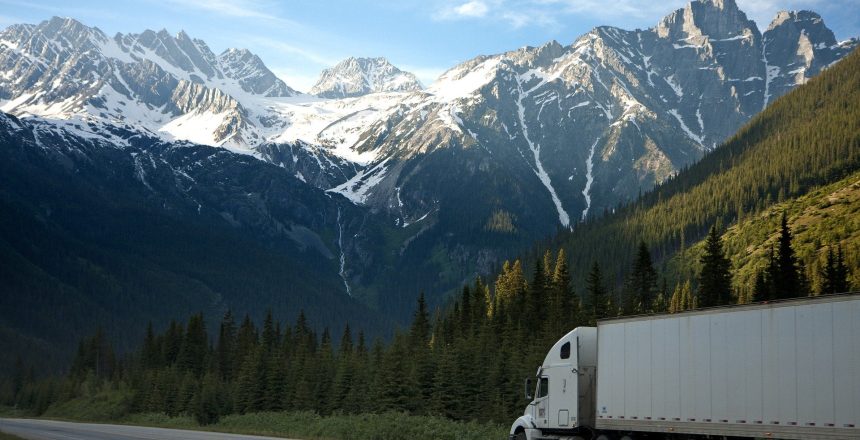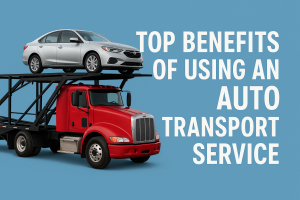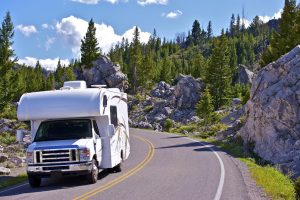Canada is one of the most beautiful places in the world. It is a great place to move to if you love snow, outdoor activities, and scenery that will take your breath away. If you have recently decided to move to Canada, you might be feeling a little overwhelmed about how to organize your move.
A big move can seem overwhelming. However, once you break it down into steps you will be able to tackle the whole project with ease! Here is the complete guide for moving to Canada. You will be ready to just hop in the car, or on the plane when you are done and head to your new adventures in beautiful Canada!
Thankfully for you, this complete guide for moving to Canada will answer many of your questions and resolve any possible concerns that you might have related to your move. Here are some things to think about and to take care of before you make the move to Canada:
1. Work Permits and Visas for Transferring to Canada
If you are not a Canadian citizen, the first thing you will need to do is get a Canadian visa and a work permit. If you were scared of the cost of the work permit visa, don’t be concerned. As of the time of this article, the cost is only 155 CAD or 117 USD. Not too bad!
The next thing that you need to know, is that there are different kinds of visas depending on the work that you do. You can get an open work permit, which will let you work for any employer in Canada. Or you can get an employer-specific permit which will include the name of the employer you are going to work for, how long you are going to work, and the location of your job.
If you are going to Canada to go to school the student visa process is slightly different than the process to get a work or visitor visa. Make sure that you have looked into all of the details of being a student in Canada on a visa before you assume that you will be able to study there. You may also need to consider housing and possible work needs while you are studying in Canada.
2. Renew Your Passport Well Before Heading to Canada
If you have let your passport expire, or if you have never had one, you will need it to get into Canada. You will also need it to be approved for a work visa. If you attempt to drive across the border or fly across the border without it, you will be turned back.
Passports can take a few weeks to be issued or renewed, so make sure that you get started on the passport part of your travel documents well before you need to actually leave your current place of residence. Nothing is worse than pushing back your move due to your passport not showing up in the mail!
3. Canadian Housing Options

Make certain that you have a plan in place for seeking housing. Also, make sure you have someone to live with for a time after you move. Housing shortages are common in many Canadian cities. Therefore, you may not be able to just find somewhere to live right away when you come over the border. Expats love Canada, so you have to compete with them as well. You’ll also have to compete with other new workers moving for new jobs while looking for houses.
Also, be prepared for good housing prices in most of Canada, but steep rents in places like Vancouver and Toronto. You may need to live just outside of the major cities in order to find an affordable rental. Starting your search early can help you find something in your budget in your desired location.
4. Canadian Healthcare Eligibility After Your Move
You will be able to register for Canadian healthcare after you have been a resident of Canada for three months. Make sure that you don’t forget to watch your dates for this process. Also, don’t get the application done as soon as you are eligible. You don’t want to be living in Canada for a while and have forgotten about getting access to healthcare when you suddenly need it!
Despite the process of getting access to the Canadian public healthcare system, their healthcare is amazing and you will be so glad that you moved to Canada once you see how affordable healthcare can truly be!
5. Banking and Taxes
You will need a Canadian bank account to pay rent and take care of bills once you arrive, so it’s a good idea to get your Canadian bank account set up as soon as you can. Also, you will need to provide your social, your immigration papers, two forms of ID like a driver’s license and a passport. You may also need a few other identification documents, so make sure to check on this with the bank you are intending to get an account at.
Furthermore, you will need an address in Canada for this account as well, so make sure that you don’t start the process unless you have sorted out where you are going to live. Thankfully for many non-residents, Canada’s taxes are some of the easiest to navigate anywhere, so you don’t need to feel any stress about your taxes once it comes time to take care of that.
6. Moving Your Possessions to Canada
Moving to a whole different country can seem really complicated when you start considering how to move your possessions. It can be costly to move all your furniture and your things. Therefore, you might need to think about moving without your large items. There are many rentals that rent with furniture included if that appeals to you.
If you are going to move all your items, you will want to use sea freight for the move. This will save you a lot of money. Although, the downside is that it will take about two months for your items to arrive. Airfreight is another option for your items. Also, it is much faster, but it is billed out by weight and volume which adds to the cost.
Make sure to investigate if there is delivery to your door services offered as part of your costs to ship your items. Not all companies will deliver as well as ship your stuff.
7. Moving Your Car Across the Canadian Border
There are various ways you can move your car to your new home. If you are in the US and want to drive to your new home, you can drive over the border into Canada as long as you have your paperwork with you at the time that you come into the country.
If driving is not for you, you can ship your car via sea freight, or you can send your car with a shipping service. There are a lot of factors to consider if you want to have someone else move your vehicle for you. Make sure that you review many different companies before you make a selection. You will want to take into consideration the overall cost, if delivery is included, and whether or not they can ship your car to you in a timely manner.
You can also send your car view air freight, but this is quite expensive. It is certainly faster than other methods, but the speed of the transit will be reflected in the price. The only situation where it might make sense for you to send your car via air freight is if the car is an exotic car or a rare car that requires special handling. However, if you can afford it and want to get your car delivered right away to your new home, go for it!
No matter which method you choose to send your car to your new home, always make sure that the bid that they give you makes sense, that the cost is not extremely high or extremely low, and that you verify that the company has insurance to cover potential losses or accidents.
8. Consider The Distance Involved
Canada is a very large country. If you have been living in a smaller city or a smaller state, you might not realize how long it can take to get from place to place in a large country. This could affect where you choose to live in relation to your job. Also, it might affect how you choose to conduct your move to Canada itself.
There are three territories and ten provinces in Canada. However, you might not be aware that they are all a little unique from one another. You might find that housing or jobs are not handled the same way in each province. Be prepared to have to commute to your job. Also, make sure to check the distance involved before you choose to drive over the border to your new life.
9. Canadian Cities That are Large and Populous
On the other side of this set of considerations related to the size of Canada, is the fact that the cities are large. Some people think that all of Canada is as remote as the territories tend to be. If you think that moving to Vancouver for some peace and quiet, you might be a bit disappointed.
Canadians are the nicest people around and cities are uniformly friendly in Canada. However, not all of the cities in Canada are going to feel small and local to you. Therefore, research the population density of the city that you are thinking of moving to before you decide to move.
10. You Will Have to Become a Canadian Citizen

If you have been thinking that you will come to Canada and live and work, but not become a citizen, you need to know that there is a set endpoint for work visas. Canada offers one of the most generous visa timeframes, at four years, but you will have to apply for citizenship at the end of that four years.
You can apply for an extension on your work permit one time after this four-year time period. However, you need to meet certain qualifications first. There are some kinds of jobs that also have their own unique rules related to visas and renewals. However, you will need to be aware of these requirements as well.
11. Refresh Your Resume for the Job Market in Canada
You may not know this, but Canadian resumes have their own standardized formats. Therefore, if you use your American resume to apply for jobs, you might be disappointed by the disinterest you’ll receive.
Make sure that you follow a good template for a Canadian job resume before you head to your new home. If you are just now starting to work on getting a job, make sure that your resume meets the basic requirements so that you are able to get a job in a timely manner.
12. Bring Bank Statements
You will likely need at least three months of bank statements from your local bank when you move. This information is needed so that you can apply for a rental. Also, it is sometimes necessary for portions of the work visa process.
These bank statements will serve as proof of income and proof of funds. Bank statements are a major part of being approved for a Canadian bank account as well. Therefore, don’t forget this important detail!
13. Get References in Order Before You Head to Canada
Like in other countries, you’ll need references to apply for a place to live, and for job applications in Canada. You should have a list made up of previous employers and trusted acquaintances who can vouch for your situation and your reliability.
It also helps to have some Canadian contacts in your references list, if possible. You may not know anyone in Canada yet, but if you do, it is a good idea to have their contact information and their permission to use them as references while you get a place to live and find a job.
14. Check on Your Driver’s License

If you are from many other countries, you can simply replace your driver’s license from your home country with a Canadian driver’s license. There are some countries and some licenses that require you to take a Canadian road test before entering Canada. If you are not certain which set of rules will apply to you, there are many resources online that can help you to clarify the situation you might find yourself in.
Always get a copy of your driving record in your home country before you leave. You will probably need this to be eligible for Canadian auto insurance as well as a Canadian license. Each province has its own set of rules related to driver’s licenses, so make sure to check on the rules related to your new home province. Many of the provinces allow you to use your non-Canadian driver’s license for 90 days.
15. Prepare to Move Your Pets to Canada With You
If you have pets that are going to be moving with you, you will need to check on the necessary details related to paperwork and possible quarantine for your pet as it enters the country. Verify which health certificates and documents are needed for your animal on the Canadian Government website.
You will need health papers of some sort for each kind of animal you want to move with. Furthermore, You should put your pet in quarantine for a set duration of time after you cross the border.
Make sure that you have a carrier with you for all animals that you will be crossing the border with. While it is unlikely, you may have to surrender your animal at the border due to issues with paperwork or quarantine rules. You want to be sure they will be safe and comfortable if they have to stay behind.
16. Get Your Phone Set up for Canadian Service
You can use your cellphone provider from some other countries while you are in Canada. However, it is often much more expensive to use a foreign network plan for more than a few days. Make sure that you have made plans for your Canadian cellphone plan well before you need to start using it.
If you are interviewing for jobs or trying to find a place to live, or even trying to get your possessions delivered to your new house, being without a cellphone will make that a huge struggle. This might be almost as big a deal as making sure your travel documents are in order!
17. Get Travel Insurance
Because you are moving to a new place and can’t use healthcare right away, make sure you have travel insurance. Travel insurance will also give you coverage for lost items that are misplaced during your move. These policies can be arranged with a travel agent, an insurance broker, or even sometimes through your credit card company.
This type of insurance cannot be used long-term in place of actual health insurance or renter and property insurance. However, you will need something in place to bridge the gap until you are established in Canada.
Make sure you find out what the deductible will be. Also, find out what kind of coverage you are getting for your money. There is nothing worse than finding out once you need your insurance, that it doesn’t cover as much as you thought it did.
18. Get Car Insurance for Your New Canadian Home
While you will probably have an extension from your current auto insurance policy for a short duration of time after you arrive in Canada, this grace period will expire. You will need to get car insurance in Canada at that time to cover your vehicle or vehicles.
If you brought your driving history with you, it’ll be easy getting a new policy bound for your cars. It can also help to print out a declarations page from your prior insurance to make sure that your new agent can match up the coverages in your new policy in Canada.
19. Pack Some Warm Clothes
Even if you are moving in summer, most of Canada is quite cold in the winter. Similarly, many places in Canada get snow every year. If you are from a place like California where warm clothing is not really needed, you might get a very bad shock when you arrive at your new home and find three feet of snow on the ground!
Make sure to at least bring a couple of warm coats, some hats, and some gloves. This will get you started if you need an adjustment period after you move to your new home.
20. Get Some Canadian Currency Before You Leave

While US currency is accepted in many places in Canada, there is an exchange rate to think of if you are using US money to pay for all of your purchases when you first arrive. If you have not been able to set up your Canadian bank account, you will get really tired of paying with US money everywhere you go until you get your bank account.
Canadian money is usually available at most banks, and exchanging some money for some loonies and toonies will make your life much easier when you are in the process of moving. Their bills and coins are pretty. Also, it can be very convenient to pay with 1- and 2-dollar coins for smaller items.
You Are Ready to Head to Your New Home in Canada!
If you have considered all of these items and taken care of all your paperwork, you should be ready to make the move to beautiful Canada! Always make sure to think about all the options in front of you for moving your items, moving your car or cars, and for taking pets across the border. Having a well-thought-out moving plan in place will make your move a smooth, and stress-free process.
Canada is one of the best places to live anywhere in the world. Therefore, moving there is an exciting step to take! You’ll be glad you made the move to this beautiful country if your moving day goes off without a hitch! Follow this great guide for your move to Canada, and you will have a great moving journey!






